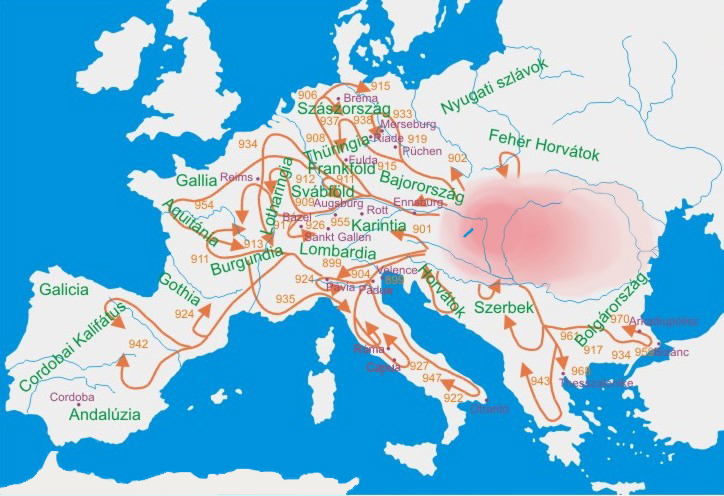rupol2000
Gold Member
- Aug 22, 2021
- 18,215
- 2,626
- 138
- Banned
- #1
At the end of the existence of the state of the Franks. There was a period of the great conquests of the Hungarians in Europe. Of course they established authority. And that was the Hungarian Empire.
It is believed that the Franks founded the Holy Roman Empire after defeating the Hungarians at the Lech River. But they could not do this, because the Hungarians had huge cavalry and excellent warriors, and the Germans always had only peasant rabble in their troops. They had no cavalry and had nowhere to feed their horses, because they did not have rich pastures. Battle of Leh fiction
This means that the Holy Roman Empire was formed later. Most likely this was at the time of the ferocity of the Inquisition, and it is with this that the change in church policy is connected. This was at the end of the 12-13th century. Obviously, this was somehow connected with the Timurid invasion of the Golden Horde.
It is believed that the Franks founded the Holy Roman Empire after defeating the Hungarians at the Lech River. But they could not do this, because the Hungarians had huge cavalry and excellent warriors, and the Germans always had only peasant rabble in their troops. They had no cavalry and had nowhere to feed their horses, because they did not have rich pastures. Battle of Leh fiction
This means that the Holy Roman Empire was formed later. Most likely this was at the time of the ferocity of the Inquisition, and it is with this that the change in church policy is connected. This was at the end of the 12-13th century. Obviously, this was somehow connected with the Timurid invasion of the Golden Horde.

